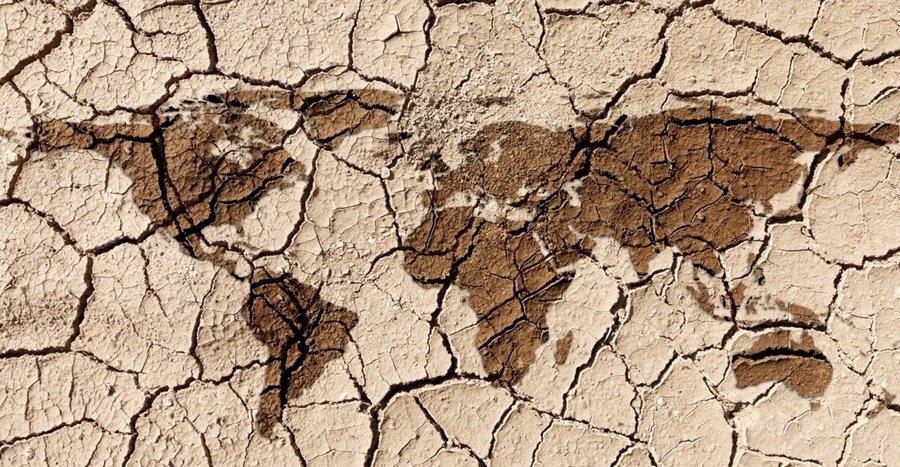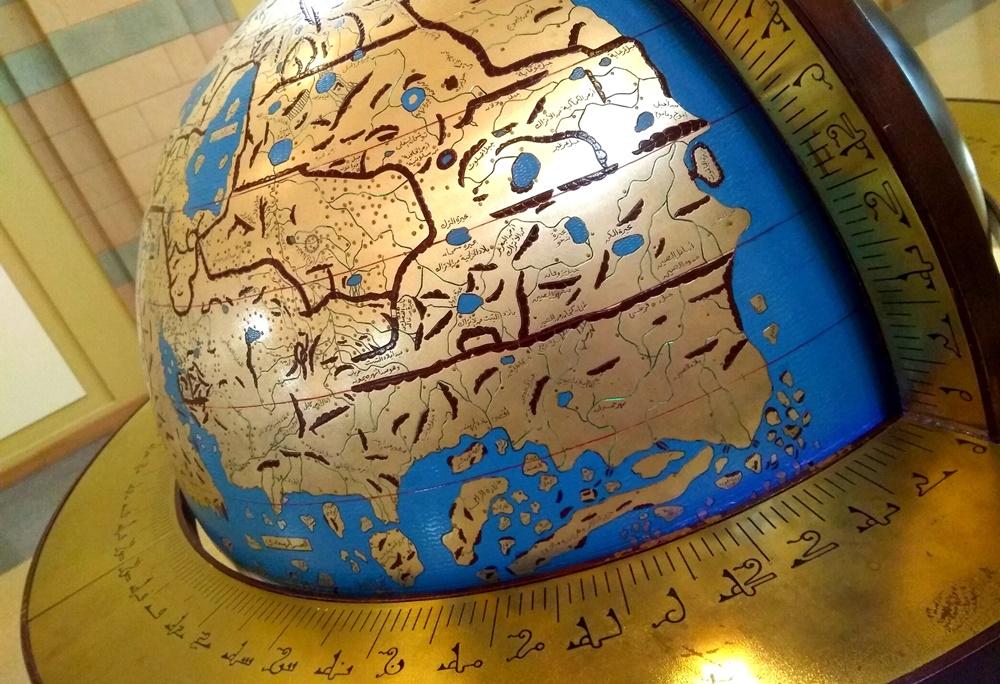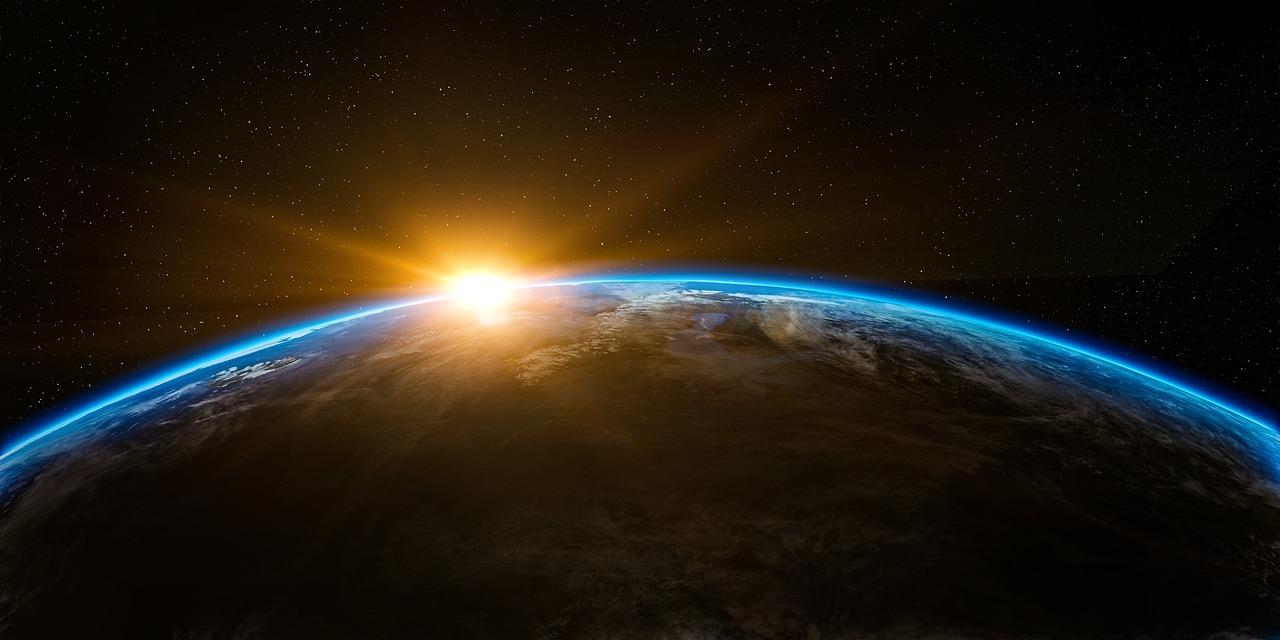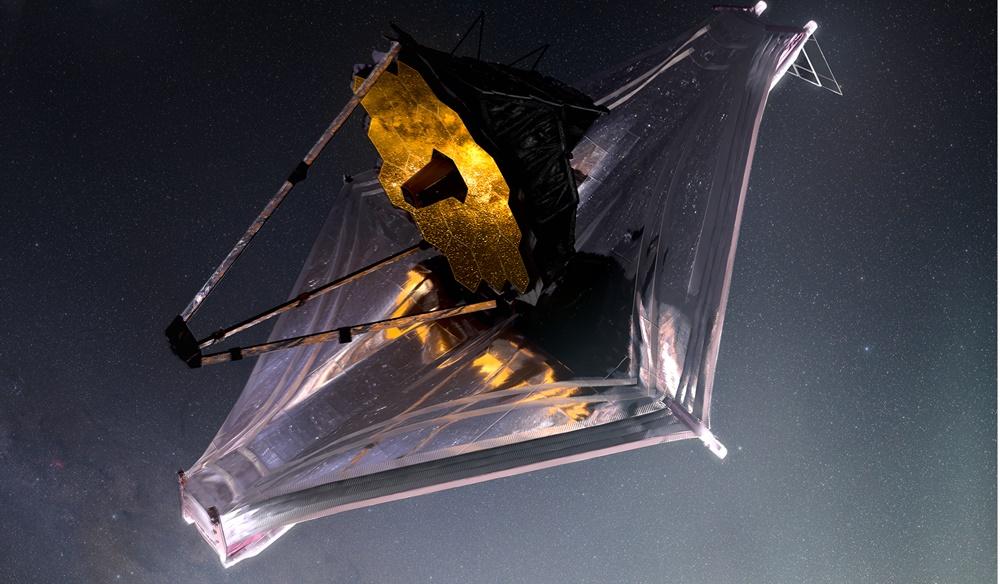Without evaporation from lakes and oceans feeding the water cycle, it would stop raining. Without pools of water to drink from, people and most animals would dehydrate and die in a matter of days.
Within a few weeks, plants would start withering in the ever-drier air. Within months, mass forest die-offs would begin. Some drought-resistant trees could survive for years, but others wouldn’t.
Huge amounts of dry, dead vegetation would lead inevitably to fires, and within a few years, most of the world’s forests would have burned. Forests store huge amounts of CO2, and this burning would roughly double the amount of greenhouse gas in the atmosphere, accelerating global warming.
Without a water cycle to weather rocks, the carbon-silicate feedback system which acts as a long-term thermostat to stabilize climate. CO2 is added to the atmosphere by volcanoes (although at the moment, it is being added about ten times faster by people).
When water flows over certain rocks, chemical reactions suck CO2 from the air and eventually bury it in seafloor sediments. With less CO2, the planet gets colder. A colder planet means less evaporation, which means less weathering, which means CO2 removal slows down.
This feedback loop—which operates over much longer timescales than human-caused climate change—is probably what’s kept the Earth’s temperature relatively stable over the last few billion years (give or take a few snowball Earths) even though the Sun has gotten hotter, would shut down.
Without this feedback, volcanic CO2 would build up in our atmosphere, leading—in the long term—to scorching temperatures similar to what’s happened on Venus.
Interestingly, because of Venus’s lighter color (and thus higher reflectivity), it only absorbs about half the solar radiation that Earth does despite being substantially closer to the Sun. The thick blanket of CO2 in its atmosphere is what keeps it hot.
Say (O Muhammad صلى الله عليه وسلم): “Tell me! If (all) your water were to sink away, who then can supply you with flowing (spring) water?” [Quran 67:30]
Also read: Is Our Planet Overpopulated?
Water Cycle And The Qur’an
When the verses of the Quran concerning the role of water in man’s existence are read in succession today, they appear to express ideas that are obvious since the water cycle in nature is well known.
However, the ancient concepts on this subject were largely mythical or based on philosophical speculation than observed phenomena. Although it was empirically possible to acquire the useful practical knowledge necessary to improve irrigation, the concepts held on the water cycle in general would hardly be acceptable today.
The Quran says:
“We sent down water from the sky, blessed water whereby We caused to grow gardens, grains for harvest, tall palm-trees with their spathes, piled one above the other – sustenance for (Our) servants. Therewith We gave (new) life to a dead land. So will be the emergence (from the tombs).” [Quran 50:9-11]
“We sent down water from the sky in measure and lodged it in the ground. And We certainly are able to withdraw it. Therewith for you We gave rise to gardens of palm-trees and vineyards where for you are abundant fruits and of them you eat.” [Quran 23: 18-19]
“We sent forth the winds that fecundate. We cause the water to descend from the sky. We provide you with the water – you (could) not be the guardians of its reserves.” [Quran 15:22]
“Allah is the One Who sends forth the winds which raised up the clouds. He spreads them in the sky as He wills and breaks them into fragments. Then thou seest raindrops issuing from within them. He makes them reach such of His servants as He wills. And they are rejoicing.” [Quran 30:48]
“(Allah) is the One Who sends forth the winds like heralds of His Mercy. When they have carried the heavy-laden clouds, We drive them to a dead land. Then We cause water to descend and thereby bring forth fruits of every kind. Thus We will bring forth the dead. Maybe you will remember.” [Quran 7:57]
“Hast thou not seen that Allah sent water down from the sky and led it through sources into the ground? Then He caused sown fields of different colors to grow.” [Quran 39:21]
“Therein We placed gardens of palm-trees and vineyards and We caused water springs to gush forth.” [Quran 36:34]
“Hast thou not seen that God makes the clouds move gently, then joins them together, then makes them a heap. And thou seest raindrops issuing from within it. He sends down from the sky mountains of hail, He strikes therewith whom He wills and He turns it away from whom He wills. The flashing of its lightning almost snatches away the sight.” [Quran 24:43]
“Have you observed the water you drink? Do you bring it down from the rainclouds? Or do We? If it were Our will, We could make it salty. Then why are you not thankful?” [Quran 56: 68-70]
Can Man Produce Rain?
In modern times technology has surely made it possible to create rain artificially. Can one therefore oppose the statement in the Quran to man’s ability to produce precipitations?
The answer is no, because it seems clear that one must take account of man’s limitations in this field. M.A. Facy, an expert at the French Meteorological Office, wrote the following in the Encyclopedia Universalis under the heading Precipitations:
“It will never be possible to make rain fall from a cloud that does not have the suitable characteristics of a raincloud or one that has not yet reached the appropriate stage of evolution (maturity).”
Therefore, man can never hasten the precipitation process by technical means, when the natural conditions for it are not present. If this were not the case, droughts would never occur in practice – which they obviously do.
Man cannot willfully break the established cycle that maintains the circulation of water in nature. This cycle may be outlined as follows, according to modern ideas on hydrology:
The heat from the sun’s rays causes the water from the sea and other water surfaces on Earth to evaporate. The water vapour that is given off rises into the atmosphere and, by condensation, forms clouds. The winds then intervene and move the clouds thus formed over varying distances. The clouds can then either disperse without producing rain, or combine their mass with others to create even greater condensation, or they can fragment and produce rain at some stages in their evolution.
When rain reaches the sea (70 percent of the Earth’s surface is covered by water), the cycle is soon repeated. When rain falls on the land, it may be absorbed by vegetation aid its growth; the vegetation in its turn gives off water and thus returns some water to the atmosphere.
The rest, to a lesser or greater extent, infiltrates into the soil, from where it is either conducted through channels into the sea, or comes back to the Earth’s surface network through springs or resurgences.
When one compares the modern data of hydrology to the numerous verses of the Quran it is evident that there is a remarkable degree of agreement between them.
Quranic Concepts
“We (Allah) send down water from the sky in measure and lodged it in the ground and we certainly are able to withdraw it” (Qur’an 23: 18-19)
These verses explain the complete water cycle i.e., water fall, penetration of water in the soil and evaporation phenomenon.
“Allah is the one who sends forth the winds which rise up the clouds he spreads them in the sky as he wills and breaks them into the fragments then thou seest raindrops issuing from within them” (Qur’an 30: 48)
The above verses clarify the processes of evaporation, condensation, fragmentation and rain-cycle.
“We send for the winds that fecundate. We cause the water to descend from the sky we provide you with the water you could not be the guardian of its reserves” (Qur’an 15: 22 )
The above Ayat gives two possible interpretations, fecundating winds may be wind pollination to fertilize the plants or role of winds which convert non-rain carrying cloud into shower of rain.
References:
http://www.islamweb.net/en/article/134578/the-water-cycle-and-the-seas-in-the-quran http://www.irfi.org/articles/articles_51_100/hydrology_or_water_cycle_in_qur.htm
Limited free articles. Subscribe for full access.








 Dr. Bilal Philips
Dr. Bilal Philips